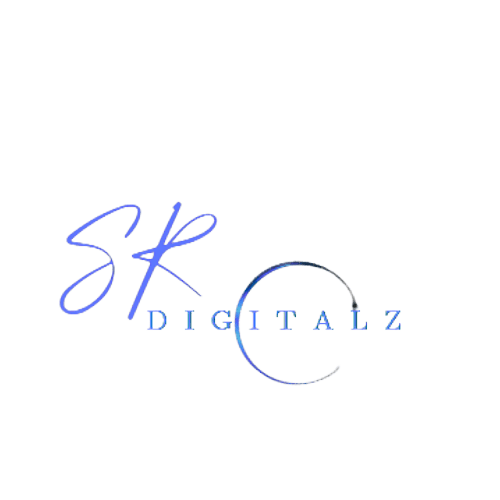Harnessing AI for Lead Generation: The Future of Marketing in 2024
Businesses are increasingly looking to artificial intelligence (AI) to acquire a competitive edge in the ever changing field of digital marketing. AI will play a more important part in lead generation as 2024 progresses, providing creative approaches to draw in, hold on to, and close prospects. Here, we look at the future of marketing and how AI is transforming lead creation.

AI-Powered Lead Scoring and Segmentation
AI’s unmatched accuracy in scoring and segmenting leads makes it one of the most useful tools for lead generation. Conventional approaches frequently depend on manual procedures and static criteria, which can be laborious and error-prone. AI, on the other hand, analyzes enormous volumes of data and makes predictions about which leads are most likely to convert using machine learning algorithms. AI models may constantly modify lead scores and refine segments by continuously learning from fresh data, so that marketing efforts are always directed toward the most potential prospects.
Chatbots and Conversational AI
Conversational agents and chatbots powered by AI have revolutionized the way organizations engage with prospective customers. These round-the-clock virtual assistants may interact with website visitors in real time, respond to their questions, and help them move through the sales funnel. Through the utilization of natural language processing (NLP), chatbots are able to comprehend and react to intricate inquiries, offering a customized encounter that stimulates interaction and establishes confidence. We may anticipate chatbots to grow even more complex as AI technology develops, managing more complex conversations and interacting with other marketing tools with ease.

Predictive Analytics and Customer Insights
AI-powered predictive analytics gives marketers the ability to forecast consumer behavior and make data-driven choices. Artificial Intelligence (AI) can predict future trends and provide the best lead generation techniques by examining past data and finding patterns. This feature goes beyond simple demographic data; it also includes behavioral data from past purchases, social media activity, and website interactions. Businesses are able to design highly focused ads that connect with their target audience and increase conversions by gaining greater insights into customer preferences and intent.
Personalized Content and Recommendations
Effective lead creation requires personalization, and AI is excellent at producing customized content at scale. AI can provide tailored suggestions for goods, services, and content by examining the unique behaviors and tastes of each user. This degree of personalization improves user experience, raises engagement, and raises conversion rates. We anticipate AI will continue to improve customization strategies in 2024, employing cutting-edge algorithms to provide hyper-relevant material that speaks directly to the individual requirements and interests of each lead.
Automation and Efficiency
Lead generation procedures are streamlined by AI-driven automation, giving marketers back significant time and resources. Artificial Intelligence (AI) can do repetitive jobs accurately and efficiently, from optimizing ad placements to automating email campaigns. This increases output while freeing up marketers to concentrate on strategic tasks requiring human ingenuity and skill. We should expect even more advanced automation capabilities as AI develops, which will further improve the efficacy and efficiency of marketing.

Ethical Considerations and Data Privacy
AI has a lot to offer in terms of lead creation, but it also brings up some serious ethical issues, especially with regard to data privacy. Businesses need to make sure they are in compliance with laws like the California Consumer Privacy Act (CCPA) and the General Data Protection Regulation (GDPR) as AI systems gather and analyze enormous volumes of personal data. To preserve customer trust and stay out of legal hot water, transparency and ethical data use are essential. More comprehensive standards and regulations governing the moral application of AI in marketing should be in place by 2024.
Conclusion
The marketing landscape is changing as a result of AI’s integration into lead generation, which presents new chances for companies to meaningfully engage with prospective clients. AI is making it possible for marketers to work smarter, not harder, with tools like predictive analytics, tailored content, and sophisticated lead scoring and segmentation. Future developments in artificial intelligence (AI) offer even more breakthroughs that will propel lead generation tactics toward greater effectiveness and efficiency. Businesses may stay ahead of the curve and prosper in the cutthroat digital economy of 2024 and beyond by embracing AI.
Frequently Asked Questions (FAQs)
1. What is AI-powered lead generation?
- Utilizing artificial intelligence technologies to locate, entice, and convert potential clients is known as AI-powered lead generation. Artificial intelligence (AI) technologies evaluate data to increase the efficacy and efficiency of lead generation initiatives by scoring leads, segmenting audiences, automating marketing chores, and personalizing interactions.
2. How does AI improve lead scoring and segmentation?
- Artificial Intelligence enhances lead scoring and segmentation by analyzing large volumes of data through machine learning algorithms. This enables AI to dynamically modify lead scores based on real-time data and anticipate which leads are most likely to convert. It leads to more precise targeting and economical use of marketing funds.
3. What role do chatbots play in AI-driven lead generation?
- Chatbots powered by AI interact with website users in real time, responding to their inquiries and assisting them in moving through the sales funnel. They provide a personalized experience that improves engagement and fosters trust with potential leads by utilizing natural language processing (NLP) to comprehend and answer to difficult queries.
4. How does predictive analytics help in lead generation?
- With the aid of artificial intelligence (AI), predictive analytics examines past data to find trends that may be used by marketers to project future trends and consumer behavior. This facilitates the development of data-driven lead generation, campaign optimization, and timing- and audience-appropriate messaging.
5. Can AI personalize content for lead generation?
- Indeed, AI is capable of personalizing content by creating customized suggestions for goods, services, and content based on analysis of user behavior and preferences. This degree of personalization raises engagement, enhances user experience, and increases conversion probability.
6. How does AI-driven automation benefit lead generation?
- AI-driven automation provides accuracy and efficiency in handling repetitive marketing chores, like optimizing ad placements and delivering emails. Processes are streamlined, time is saved, and marketers are free to concentrate on strategic, creative tasks that call for human intelligence.
7. Are there any ethical concerns with using AI for lead generation?
- Indeed, there are ethical issues, especially with regard to data protection and observing laws like the CCPA and GDPR. To keep customers’ trust and stay out of trouble with the law, businesses must maintain transparency and ethical data use.
8. What are the future trends in AI for lead generation?
- Future developments will see increased automation capabilities, complex AI algorithms for even better customization, and sophisticated predictive analytics. We should also anticipate the creation of stronger moral frameworks and regulations to control the application of AI in marketing.
9. How can businesses start using AI for lead generation?
- Companies might begin by determining particular domains, such lead scoring, segmentation, or customer interaction, where AI can be useful. Effectively incorporating AI into lead generation plans requires funding AI platforms and technologies, employee training, and adherence to data protection laws.
10. What is the ROI of using AI for lead generation?
- Utilizing AI for lead generation can have a large return on investment since it boosts productivity, enhances targeting, and personalized content, which increases conversion rates and improves customer retention. The precise ROI, however, will rely on how well the AI technologies are integrated into and applied within the broader marketing plan.







